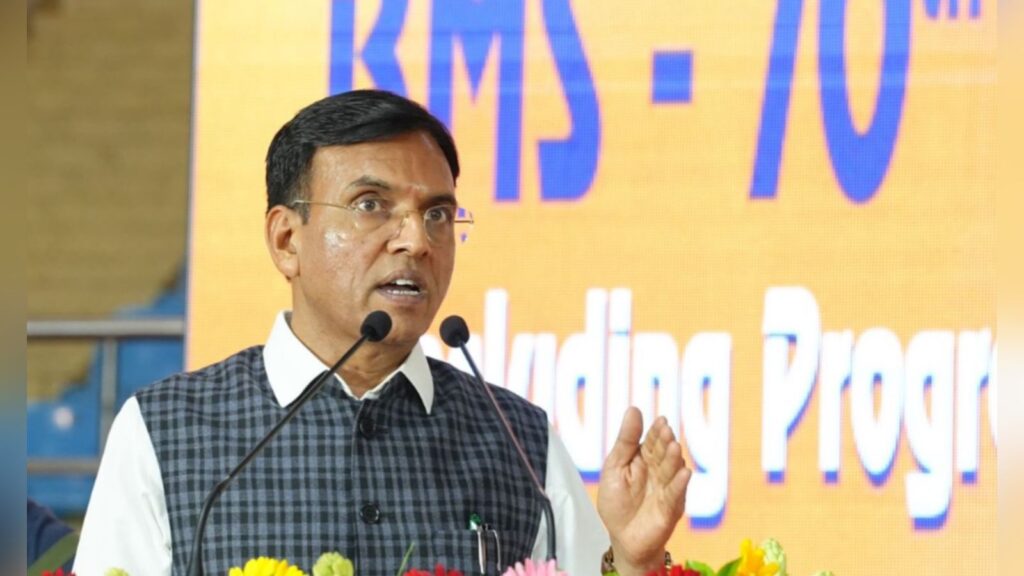
Shamik Chakrabarty
The National Sports Bill previously had faced rejections, at the cabinet level and in parliament. This time, though, there’s a strong belief that the National Sports Governance Bill, 2025, will become an Act in due course. Union Sports Minister Mansukh Mandaviya tabled the Bill in the Lok Sabha on Wednesday, with an aim to bring transparency and standardise India’s sports administration.
Here are some salient features of the Bill that promises to overhaul India’s sports governance.
Age and tenure cap
It’s a bit tricky. The Bill puts the age cap at 70 for office-bearers, extending up to 75 at the time of nomination if the international charter and statutes of the respective sport allows it.
As regards the tenure limit, it’s three consecutive terms, adding up to 12 years for the post of president, secretary and treasurer in a sports body.
Where does it leave Roger Binny, the BCCI president?
Binny, the World Cup-winning former India all-rounder and the current BCCI president, turned 70 on July 19. As per the BCCI constitution, based on the Lodha Committee recommendations, he becomes ineligible the moment he turns 70. The question is, as per the proposed Bill, can he continue at least for one more term because the International Cricket Council (ICC) doesn’t have an upper age limit for its office-bearers? It is still some time before the Bill becomes an Act, while the BCCI’s next AGM will be held in late September or early October. But there’s a school of thought that without an upper age limit as per the ICC charter, the BCCI just might follow the Lodha Committee recommendations and appoint a new president at the AGM.
The all-powerful National Sports Board
The Sports Bill makes the National Sports Board (NSB) all powerful. It will have the overriding powers to grant recognition or suspend any National Sports Federation (NSF). The NSB will have a chairperson, while its other members will be appointed by the central government from “amongst persons of ability, integrity and standing”. An eminent sportsperson – a Dronacharya, or a Khel Ratna, or an Arjuna awardee – will also be part of the NSB. It will have the authority to de-recognise an NSF in cases of election, financial or other irregularities. The strength of the executive committee in a sports body has been capped at 15 to ensure that the financial burden is not too high.
Introduction of National Sports Tribunal
According to the Sports Ministry, more than 350 cases related to different sports bodies (NSFs) are currently in progress in various courts. The setting up of a National Sports Tribunal promises to end that, as it will have the powers of a civil court. The head of the Tribunal will be a sitting or retired judge of the Supreme Court or the Chief Justice of a High Court.
National Sports Election Panel
To oversee the conduct of elections to the Executive Committees and Athletes Committee of the sports bodies, a National Sports Election Panel will be formed comprising retired members of the Election Commission of India or the State Election Commission or retired Chief Electoral Officers of the States or Deputy Election Commissioners. The Panel will act as “Electoral Officers”.
RTI to cover all sports bodies?
The BCCI doesn’t rely on government funding. But as per the Sports Bill, it will have to register itself as an NSF. So far, the cricket board has refused to budge. Will it fall in line? The next AGM could be interesting.
Follow Revsportz for latest sports news



